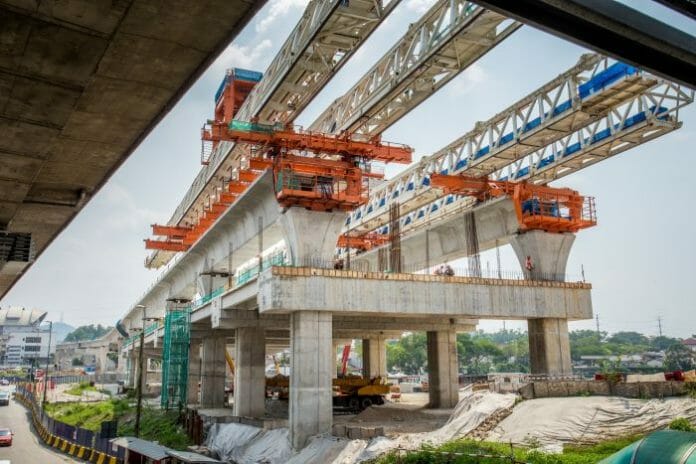The prices of steel bars rose for the second consecutive month on the back of higher iron ore prices, driven by expectations of higher demand from China following the reopening of its borders in January. Based on the prices of five types of mild steel bars and four types of high tensile deformed bars tracked by the Department of Statistics Malaysia (DOSM), the average price rose +1.9%mom in Feb23 (Jan-23: +0.03%) to RM3,672.62 per tonne, its largest monthly increase since Apr-22 at +2.3%. The price, however, is still -5.9% lower than its peak of RM3,901.81 in Jun-22.
The strongest surge in prices came from the Peninsula, where the northern region recorded an increase of +4.6%mom to RM3,166.12 per tonne. The central and eastern regions saw a +2.1% and +2.2% rise respectively to RM3,395.87 and RM3,236.22. In Sabah and Sarawak, the rate of increases was lower, between +0.1%mom to +1.4%mom but prices were higher, between RM3,456.02 and
RM4,378.75 per tonne.
The binding substance remained unchanged at an average of RM22.04 per 50kg bag in Feb-23 (Jan-23: +4.8%). There was a notable +4.7% increase in the northern region to RM20.19 and a +3.6% increase in the eastern region of the Peninsula. In Sabah, there was a +2.2%mom and +3.3%mom increase in Sandakan and Tawau respectively to RM24.10 and RM23.57 while prices in Sarawak remained unchanged.
MIDF however, expects steel bar prices to remain elevated in the coming months, in line with the strong iron ore prices, which is the main raw material for steel. China’s Dalian Commodity Exchange (DCE) Iron Ore Futures have risen +53.9% since Oct 31, 2022 to 905 yuan (RM590.77) per 100 tonne as of yesterday. Similarly, the SGX Iron Ore Futures surged +70.7% during the same period to SGD128.55 (RM429.67). It would be reasonable to expect such prices to come off
again as Chinese authorities step in to curb the surge in prices, such as by preventing the hoarding of iron ore and urging traders to dispose part of their inventories. In a related development, China is also slashing its crude steel production this year, which is expected to weigh on iron ore.
The research house also expects the increase in steel bar prices to be a short-term pain for Malaysian contractors due to the
elevated level of iron ore prices, which should see downward pressure in the coming months on the back of China’s
intervention. Most companies under the house’s coverage would still be able to maintain their margins despite the slight increases, barring any unforeseen circumstances.
Overall MIDF maintains its POSITIVE view on the construction sector as the current cost headwinds remain manageable and expects FY23 to be a better year for contractors, especially given the boost by the recently tabled Budge 2023, with a slew of infrastructure works and public utilities that would translate to stronger job flows this year.
It also opines that the highlight for FY23 will still be the rollout of MRT3, which has been delayed since Dec-22 due to a review by the Government to bring the cost down from RM50b to RM45b. Our preferred names for the sector remain, namely Gamuda (BUY, TP: RM5.04), Sunway Construction (BUY, TP: RM2.00) and IJM Corp (BUY, TP: RM1.90)









